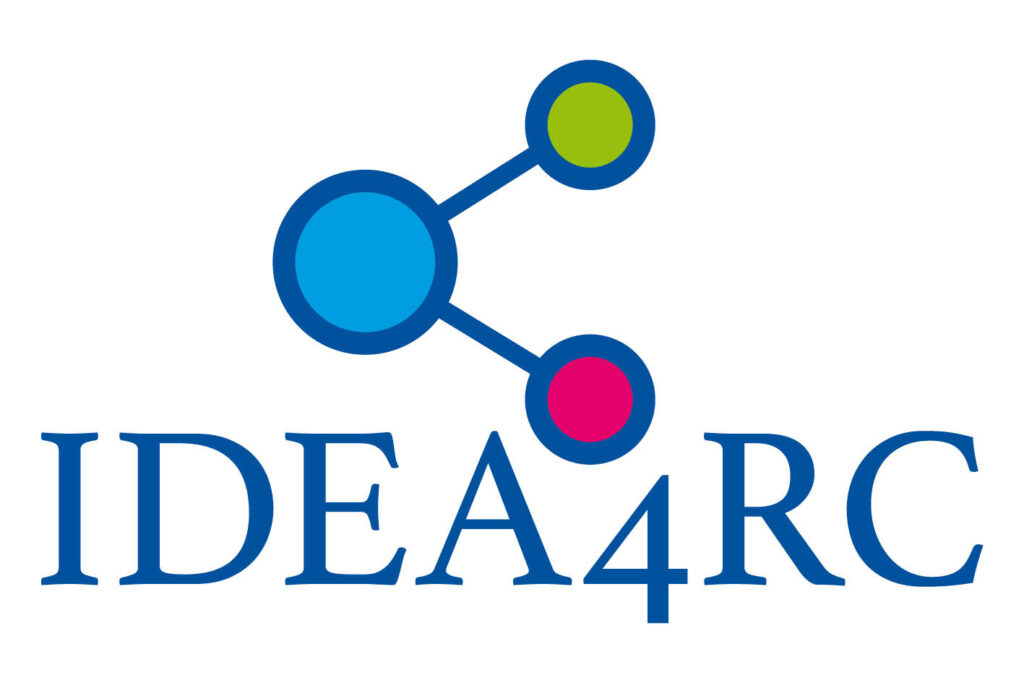The fourth issue of the IDEA4RC newsletter
Newsletter #4
Hello,
In this newsletter we dive into the legal aspects of IDEA4RC. What legislation should be taken into account when developing an ecosystem that facilitate the re-use of health data on rare cancers for research purposes in the EU? What are the main challenges? What changes are occurring in the legal framework of the EU concerning health data? We asked these questions to Vasiliki Tsiompanidou, legal researcher at ECCP and partner of the consortium.
If you missed the previous issues of this newsletter, you can read them here. Also, enjoy a video interview with Annalisa Trama, IDEA4RC coordinator, where she introduces the project and its vision on health data re-use.
By subscribing to the newsletter, you will be receiving bi-monthly updates on the project’s advancements. If you want to invite your friends to subscribe, send them this link.
EU legal landscape on health data sharing and re-use: interview with Vasiliki Tsiompanidu
In the previous months European institutions have added new pieces to the legal landscape of the Union regarding artificial intelligence, data and health data in particular. The EU is doing so to protect basic human rights while at the same time not hampering innovation and favouring data exploitation to improve European citizens quality of life.
Vasiliki Tsiompanidou works as a legal researcher at the European Centre for Certification and Privacy and is taking care of the legal and ethical aspects of IDEA4RC. We talked with her about how the latest events are influencing her work on the project.
What are the main challenges you are facing within the IDEA4RC project?
We are dealing with a rapidly evolving landscape from the regulatory point of view, and this mainly derives from the fact that the targets of the regulations are extremely complex technologies that develop very fast. Just think about how difficult is to agree on a common definition of Artificial Intelligence.
IDEA4RC pilot projects are meant to start by the end of 2024. By that time, we need to establish the proper framework that enables the clinical centres to share data with each other and run analyses on it. To do so we will have to abide by the General Data Protection Regulation (GDPR) adopted in 2016, which will remain the primary legislative instrument regulating health data re-use in the EU for the next two years, when the European Health Data Space Regulation (EHDS) will become applicable. At the same time, we need to develop a data governance framework legally compliant with the EHDS, which will be regulating IDEA4RC after the end of this project, when we hope more centres will join and users will start to truly benefit from it.
Why does the GDPR affect IDEA4RC pilot projects?
The IDEA4RC platform will facilitate the re-use of health data, that is personal data originally collected by clinical centres to provide care to their patients, in order to advance the knowledge on rare cancers and ultimately improve the quality of care. The pilot projects will test this kind of re-use, leveraging on the data of the 11 clinical centres that participate in the consortium and on the research questions identified by IDEA4RC cancer researchers (see deliverable D8.1).
The GDPR sets a series of legal requirements to process personal data for purposes other than the one for which they were initially collected, and this is exactly the kind of processing IDEA4RC pilot projects will carry out.
The clinical centres involved in IDEA4RC are spread across European member states and this adds a layer of complexity, since each state has adopted the GDPR in their national legislation often introducing additional or more specific requirements that differ from one another. Furthermore, each clinical centre has its own policies and measures to ensure compliance with the national legislation and data protection authorities guidelines. We have mapped out these differences in a recent deliverable (D8.2), which will serve as the starting point for the development of appropriate data-sharing agreements to allow the deployment of pilot projects.
Continue to read the interview here.
Meetings, results and updates
- We are glad to announce the first publications acknowledging the support of IDEA4RC. You can find them here.
- Deliverable 8.2 on pilot data governance is ready. It details the work done so far to identify the legal and ethical requirements needed to deploy the pilot projects across the 11 clinical centres involved in IDEA4RC. You can read a summary here.
- The fourth IDEA4RC plenary meeting will be held on 29-30 April at Istituto Nazionale dei Tumori in Milan. Have a look at the agenda here.
- Pablo Parente will present IDEA4RC at the 71th National Congress of the Portuguese Society of Otolaryngology and Head and Neck Surgery, which will be held in Braga from 26 to 28 April. You can read about the conference and have a look at the slides here.
Whats up in health data sharing and reuse in the EU
- On March 8, the AI Act was approved by the European Parliament. Read the press release here.
- On March 15, the European Parliament and the Council of the EU agreed on a final version of the European Health Data Space, which aims at (1) put citizens at the centre of healthcare, giving them full control over their data to obtain better healthcare across the EU; (2) open up data for research and public health uses.
- On April 24, the European Parliament approved the inter-institutional agreement on establishing a European Health Data Space, which will become applicable e in different stages according to use case and data type. Jelena Malinina, data director of Rare Disease Europe (EURORDIS), reacted to the news by saying that: «Such transparency and immediacy in accessing ones own health information is critical, especially for the rare disease community where timely information can significantly influence treatment outcomes». She also welcomed the use of data for research.
